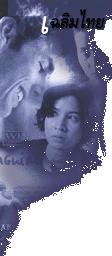 ความคิดเห็นที่ 481
ความคิดเห็นที่ 481

ไป ๆ มา ๆ ยิ่งรู้สึกว่ากระทู้นี้วกวนเข้าไปทุกวัน ๆ .. คงไม่ขอเถียง ไม่ขออธิบายอะไรแล้ว ขอยกบทสัมภาษณ์จาก link ที่ คห.476 มาทิ้งไว้ให้ มาให้อ่านก็แล้วกัน
ขอยกมาแต่ที่หมอ Steve พูดแล้วกันนะคะ อ่านแค่บทสัมภาษณ์ของหมอ Steve คนเดียวก็คงทำให้พวกคุณเข้าใจอะไรมากขึ้น อย่างน้อยก็ลองมองโลกในอีกมุมนึงมั่งเถอะค่ะ
- - - - - - - - - - - - - - - - - - - -
................ It was at this point that volunteer medical doctor Stephen B. Wilson proved invaluable.
Dr Wilson was on sabbatical leave in Thailand from his practice at the Queen's Hospital, Hawaii. Having fallen in love with Thailand, he had been working towards spending more time in this country.
"I heard about the tsunami, and that there had been a few hundred victims. I knew that couldn't be true," said the soft-spoken, LA-bred Dr Wilson, who earned his credits in obstetrics from Yale medical school, with a year's training in trauma surgery. "Living in Hawaii, I know about tsunamis, and I knew the damage had to be far worse than that. I was undergoing physical therapy for my polio leg at Chulalongkorn Hospital when my therapist said he was going to volunteer, so I decided to go too."
Finding all the surgical teams taken care of, he offered his services to Dr Porntip. He ended up being one of two foreign doctors working on the Thai team. His ability to discern Western from Asian bodies through facial structure and other distinguishing features such as limbs, fingernails and toenails, helped speed up the initial process of separating the bodies of foreigners to be handed over to the international DVI team.
Here he worked side by side with medical professionals as well as volunteers with no training at all like Joy, who had come over to help photograph the bodies. :-) never once did he doubt the accountability of the system used, and has nothing but praise for the way the forensic procedures were conducted.
"There were five teams _ separation, examination, DNA, dental _ all of which could be working on different bodies at the same time, and IT [information technology] would merge all the information. The beauty of the system was that everybody's work could be triple-checked. Having worked in trauma, I found that amazing. I got to work on every single team, even the dental team. I believe I saw all the bodies, and touched every single one at Wat Yanyao. Another innovation was that everything was photographed, even the external exams. That is something nobody in the world has ever done, not even with the World Trade Centre. And that's beyond international standards.
"Everyone had problems in the first week, even the DVI. But everyone learned and grew, and standards evolved. I learned a lot, and we developed some incredible medical history that Thailand should be so proud of. It will become medical school teaching for many many years.
"Thais should be proud of themselves. No medical school teaches this; it is a totally new innovation, this rapid evaluation processing that is so complete.
"The information from the rapid evaluation process was then fed to a computer team from the Justice Ministry who developed a programme on Excel. That team worked 24 hours a day and never fell more than 20 hours behind the medical team's work. I said to them, 'Do you realise that this is medical history?' They were very humble about it. The only next thing to do would be to give each person a laptop where they could enter the information in the field by wi-fi (wireless communications).
"The beauty of it was also that no one on the Thai side complained despite the working conditions. They were working in the open sun, squatting on the ground, under such horrible conditions, :-) maintaining such high medical standards that there was zero contamination. I also got to go into DVI, and the main reason I wanted to go in there was not only to see what they were doing, but to make sure the thai team was meeting their standard, or exceeding them. And I can tell you from my personal medical observations, that everyone had problems in the first week. No one's work was up to Interpol standards then, not even the foreign DVI. We were all making do. It was a major disaster. Everybody was making mistakes, but everybody learned. As medical colleagues we felt reassured about each other's work as it evolved.
"I think we should be thanking Dr Porntip for not following the rigid Interpol protocol. Right now, foreign DVI, with all their equipment and support, can do 48 bodies a day. In the first week we would have done 300 bodies. If we did that, would anyone be thanking us for following Interpol protocol for processing 300 bodies and allowing 3,200 other bodies to rot in the sun?
"This was the hardest thing I ever did, even with my medical training. The overall conditions _ the medicine, food, telephone, electricity _ it was a war zone."
- - - - - - - - - - - - - - - - - - - -
อ่านจบแล้วคงเข้าใจ ว่าบทสัมภาษณ์นี้อธิบายอะไรได้เยอะจริง ๆ คงไม่ต้องอธิบายอะไรกันให้มากไปกว่านี้แล้ว
จากคุณ :
i-t i m...  - [
1 มี.ค. 48 22:40:39
]
- [
1 มี.ค. 48 22:40:39
]
|
|
|

